Picture this: you’ve invested in a mobile home, found the perfect trailer park community, and settled into your new space. Life is good. But then, out of nowhere, you receive a notice: eviction. The warning signs were there – missed payments, disputes with neighbors – but now it’s become a reality. You’re left wondering what happens next. Understanding the consequences of eviction for mobile homes is crucial. Whether you’re thinking about investing in a mobile home or currently dealing with an eviction situation, buckle up as we delve into the ins and outs of what happens to your mobile home after eviction. In this article What Happens To Your Mobile Home If You Get Evicted we will discuss all the ins and outs of the eviction process and even answer some questions along the way.
Consequences of Not Making Mortgage or Land Lease Payments on a Mobile Home
Risk of foreclosure on the mobile home
If you fail to make your mortgage or land lease payments for your mobile home, there is a significant risk of foreclosure. This means that the lender or landlord can take legal action to seize and sell your property in order to recover the unpaid debts. Foreclosure can result in losing your home and any equity you may have built up.
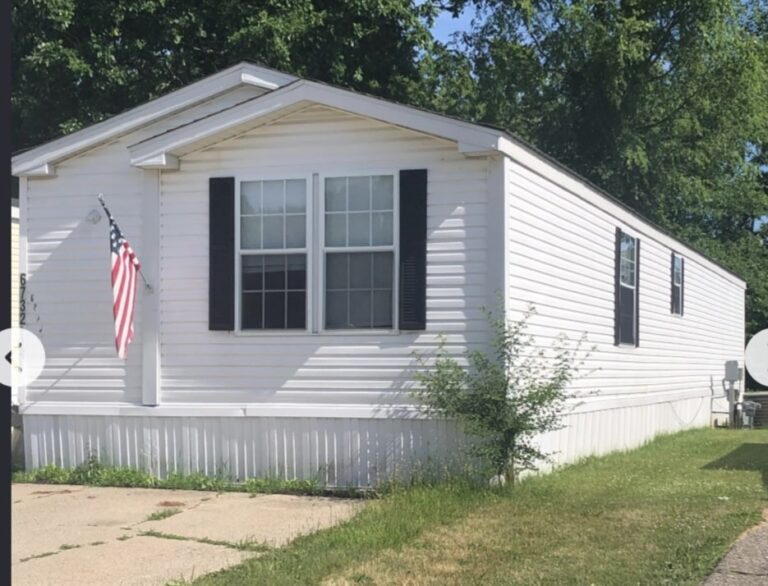
Potential damage to credit score and future loan eligibility
Late or missed payments on your mobile home can have a negative impact on your credit score. Your credit score reflects your financial responsibility, and lenders use it as an indicator of whether they should approve you for future loans. If you have a history of late payments or foreclosure, it can be challenging to qualify for loans in the future, such as car loans or mortgages.
Possibility of losing ownership rights to the property
When you finance a mobile home through a mortgage, the lender typically holds a lien on the property until you pay off the loan. If you default on your payments, the lender has the right to repossess and sell the property. Similarly, if you are leasing land for your mobile home and fail to pay rent, the landlord may terminate your lease agreement and ask you to vacate the premises.
It’s important to prioritize making timely payments on your mobile home to avoid these potential consequences. Maintaining good financial habits not only protects your investment but also preserves your creditworthiness for future financial endeavors.
Question: Can Getting Evicted Ruin Your Credit
Yes, getting evicted can have a negative impact on your credit. When you are evicted, it may result in unpaid rent or fees, and landlords or property management companies can report this information to credit bureaus. This can lead to a negative entry on your credit report, which can lower your credit score.
A lower credit score can make it more difficult for you to qualify for loans, credit cards, or rental agreements in the future. It’s essential to address any outstanding debts related to the eviction and work towards resolving the issue to minimize the impact on your credit. If you’re facing eviction, it’s advisable to communicate with your landlord or seek legal advice to explore potential solutions and avoid the negative consequences associated with eviction on your credit history.
Understanding the Eviction Process For Mobile Homes
Explanation of how eviction notices are typically served
Eviction notices for mobile homes are usually served by the landlord or park owner to tenants who have violated the terms of their lease agreement. These notices can be delivered in person, through certified mail, or posted on the tenant’s front door. It is crucial for tenants to take these notices seriously and respond accordingly.
Overview of legal steps involved in the eviction process
The eviction process for mobile homes follows a series of legal steps. After serving an eviction notice, the landlord must file a lawsuit in court to obtain an eviction order. The tenant will then receive a summons, requiring them to appear in court and present their case. If the court rules in favor of the landlord, an eviction judgment will be issued, allowing law enforcement to remove the tenant from the property.
Importance of knowing local laws and regulations regarding evictions
Understanding local laws and regulations regarding evictions is essential when facing potential eviction from a mobile home. Each state may have different rules and timelines for evictions, so it is crucial to familiarize oneself with these laws to protect one’s rights as a tenant. Consulting with a lawyer or seeking legal advice can provide valuable guidance during this process.
Navigating through an eviction can be overwhelming and stressful, but knowing what to expect can help tenants better prepare themselves. By understanding how eviction notices are served, being aware of the legal steps involved, and staying informed about local laws and regulations regarding evictions, individuals living in mobile homes can ensure they are equipped with knowledge that empowers them during this challenging time.
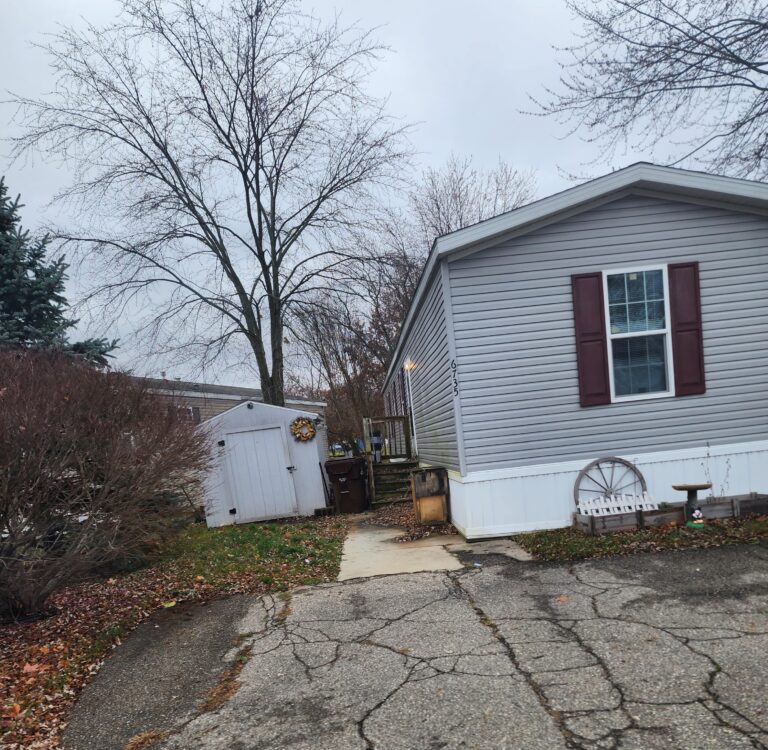
Rights and Options When Facing Eviction From a Mobile Home Lot
It’s essential to understand your rights and explore the options available to you. Here are some key points to consider:
Potential Negotiation with Landlord or Park Owner
If you find yourself facing eviction, it may be worth trying to negotiate with your landlord or park owner. Open communication can sometimes lead to finding a resolution that works for both parties. Discussing your situation, explaining any difficulties you’re experiencing, and exploring potential solutions might help in reaching an agreement.
Exploring Legal Defenses Against Wrongful Evictions
It’s crucial to be aware of your legal rights as a tenant. If you believe that the eviction is wrongful or unjustified, consulting with an attorney or legal aid service can provide valuable guidance. They can help you understand the specific laws and regulations governing mobile home parks in your area and assist in building a defense against the eviction.
Seeking Assistance from Tenant Advocacy Organizations or Legal Aid Services
Tenant advocacy organizations and legal aid services exist to support individuals facing housing-related issues. These organizations often have resources available specifically for mobile home park tenants. They can offer advice, assistance with navigating legal processes, and even represent you in court if necessary.
By understanding your rights, exploring negotiation options, seeking legal advice when needed, and reaching out for support from tenant advocacy organizations or legal aid services, you can better navigate the process of facing eviction from a mobile home lot.
Question: How Do I Stop Eviction?
To stop eviction, promptly communicate with your landlord, explain your situation, and try to work out a solution such as a payment plan. If necessary, seek legal advice to understand your rights and options to prevent or delay eviction.
Just Cause Requirements for Terminating Tenancy in a Mobile Home Park
Explanation of Just Cause Requirements for Eviction
Different jurisdictions have specific just cause requirements for terminating tenancy in a mobile home park. These requirements outline the valid reasons for eviction and provide tenants with certain protections. It is essential to understand these requirements to navigate the eviction process successfully.
Examples of Valid Reasons for Termination
Just cause requirements typically include reasons such as non-payment of rent, violation of park rules, or engaging in illegal activities on the premises. If a tenant fails to pay their rent on time or consistently violates park rules, the landlord may have grounds to evict them. However, it is crucial to note that each jurisdiction may have its own set of specific reasons considered valid for termination.
Importance of Reviewing Lease Agreements and Local Laws
To fully comprehend just cause requirements, it is vital to review the lease agreement and familiarize oneself with local laws governing mobile home parks. Lease agreements often contain provisions outlining the circumstances under which a tenancy can be terminated. Local laws may impose additional restrictions or protections beyond what is outlined in the lease agreement.
By understanding both the lease agreement and local laws, tenants can ensure they are aware of their rights and responsibilities. This knowledge empowers them to take appropriate action if they believe an eviction is unjustified or unlawful.
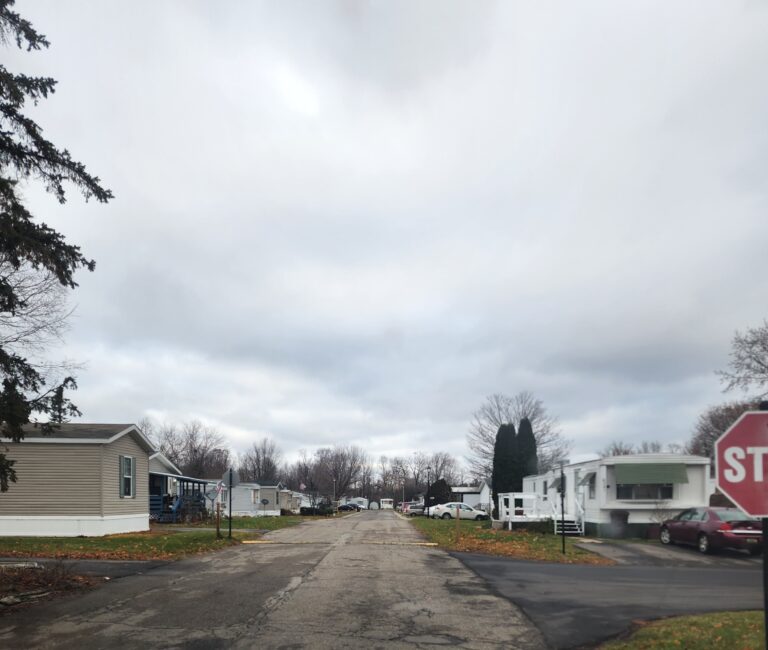
Vacating the Mobile Home After Eviction
Moving out of a mobile home after eviction can be a challenging and overwhelming process. However, by following a few important steps and considering alternative housing options, you can navigate this difficult situation with greater ease.
Steps to Take When Moving Out After an Eviction
When facing eviction from your mobile home, it’s crucial to act promptly and efficiently. Here are some steps to consider:
Review the eviction case: Familiarize yourself with the details of the eviction order and understand the timeline for vacating your mobile home.
Notify your landlord: Inform your landlord about your plans to move out and discuss any necessary arrangements or obligations.
Gather important documents: Collect all relevant paperwork related to your tenancy, such as lease agreements, receipts, and correspondence with the landlord.
Secure alternative housing: Start exploring alternative housing options well in advance to ensure you have a place to go once you leave your mobile home.
Pack and organize belongings: Carefully pack your personal belongings, ensuring they are properly labeled and organized for easy transportation.
Address utilities: Contact utility providers to schedule disconnection or transfer of services before leaving your mobile home.
Clean and restore the property: Leave the mobile home in good condition by cleaning thoroughly and addressing any damages that may have occurred during your tenancy.
Question: Can a Mobile Home Park Take Your Mobile Home
In an eviction from a mobile home park, the park typically cannot take ownership of your mobile home. However, they may have the right to remove it from the park if you fail to comply with the terms of the lease or park rules.
Considerations for Finding Alternative Housing Options
After being evicted from a mobile home, finding suitable alternative housing is essential. Here are some considerations:
Explore rental options: Look for apartments or houses for rent in your desired location within your budgetary constraints.
Seek assistance: Reach out to local government agencies or non-profit organizations that provide support for individuals facing housing challenges.
Temporary accommodations: Consider staying with family or friends temporarily while you search for more permanent housing solutions.
Manufactured home communities: Research other mobile home parks or manufactured home communities that may have vacancies.
Rights to Sell or Move the Mobile Home After Eviction
Selling Options Post-Eviction
Once you’ve been evicted from your mobile home, you may be wondering what options are available for selling it. One possibility is to sell the mobile home directly to a buyer who is interested in purchasing a used mobile home. This can be done through various channels, such as online classified ads, local real estate agents, or mobile home dealerships.
Another option is to sell the mobile home to the park owner or management. In some cases, they may be willing to purchase the unit from you, especially if they see potential value in it. However, keep in mind that park owners have different rules and regulations regarding buying homes from evicted tenants.
Factors Affecting Relocation of Mobile Homes
If you prefer to move your mobile home instead of selling it, there are several factors to consider. Firstly, check if your lease allows for relocation and whether there are any restrictions or conditions associated with it. Some leases may require prior approval from the park management before moving a mobile home.
Relocating a mobile home involves costs such as transportation fees and setup expenses at the new location. It’s important to factor in these expenses when deciding whether moving your mobile home is financially feasible.
Understanding Local Regulations
Before making any decisions about selling or moving your mobile home post-eviction, it’s crucial to understand any restrictions imposed by local regulations. Some areas have specific zoning laws that prohibit placing older or dilapidated homes in certain neighborhoods or require compliance with specific building codes during relocation.
Moreover, familiarize yourself with any rent control ordinances that may impact future owners of your mobile home. These ordinances regulate rent increases and provide protections for tenants against excessive hikes in lot rents.
By understanding your rights and options after eviction, you can make informed decisions about selling or moving your mobile home based on financial considerations and local regulations.
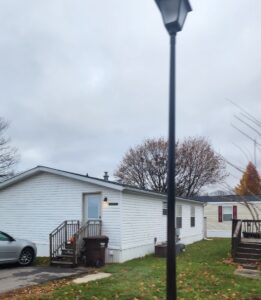
Additional Resources For Information on Mobile Home Evictions
Relevant Websites, Organizations, and Government Agencies
If you’re looking for more information about what happens to your mobile home after eviction, there are several resources available. One option is to visit websites that provide guidance on evictions and mobile home laws. These sites can offer valuable insights into the legal aspects of the process and help you understand your rights as a mobile home owner. Organizations and government agencies dedicated to housing or tenant rights may have resources specific to mobile home evictions.
HUD which stands for Housing and Urban Development can be a great resource of information to help you with Rent Relief Resources as well.
Books and Publications Covering the Topic
Another way to gain a deeper understanding of what happens to your mobile home after eviction is by exploring books or publications that extensively cover this topic. These sources often provide comprehensive information about the legalities involved, as well as practical advice for dealing with an eviction situation. By delving into these materials, you can equip yourself with knowledge that may prove invaluable in navigating the aftermath of an eviction.
Online Forums for Advice from Others
Sometimes, the best advice comes from those who have experienced similar situations themselves. Online forums dedicated to mobile homes or eviction-related topics can be excellent resources for connecting with individuals who have gone through similar experiences. Engaging in discussions on these platforms allows you to seek advice, share stories, and learn from others’ firsthand accounts. It’s important to remember that while online forums can be helpful sources of support and guidance, it’s always wise to double-check any information received against official legal sources.
By utilizing these additional resources such as websites, organizations, government agencies, books/publications, and online forums dedicated to mobile homes or evictions, you can gather a wealth of knowledge about what happens to your mobile home after eviction. Remember that each resource offers unique perspectives and insights that can aid you in making informed decisions during this challenging time.
Check out Emergency Rental Assistance Programs through the Government Offices as well.
Question: Who Regulates Mobile Home Parks?
Mobile home parks are generally regulated at the state level, with oversight from the respective state’s housing or community development agencies. These agencies establish and enforce regulations to ensure the proper management and operation of mobile home parks within their jurisdiction.
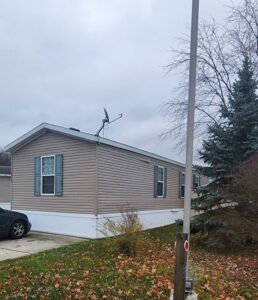
Here Are Some Concluding Thoughts on What Happens to Your Mobile Home After Eviction
In conclusion, facing eviction from a mobile home lot can be a daunting experience. However, it is crucial to understand your rights and options in such a situation. From knowing the consequences of not making payments to understanding the eviction process and just cause requirements, this article has provided valuable insights into navigating through an eviction. We explored what happens after eviction, including your rights to sell or move the mobile home.
If you find yourself in this challenging situation, remember that knowledge is power. Take advantage of the resources available to you and seek professional advice if needed. By understanding your rights and options, you can make informed decisions and potentially mitigate the impact of an eviction. Remember, you are not alone in this journey, and there is support out there for you.
If you still need more information visit our blog: Mobile Home Eviction
FAQs
What happens to your mobile home after eviction?
After eviction, the fate of your mobile home depends on several factors. If you own the mobile home and it’s in good condition, you can move it to a new location. However, if the eviction is due to non-payment or damage, the mobile home may be sold at auction or scrapped. It’s important to consult local laws and regulations for specific details.
Can I sell my mobile home before eviction?
Yes, you can sell your mobile home before eviction if you find a buyer who is willing to purchase it. Selling your mobile home can help you avoid the hassle of moving it or potential financial losses from an auction or scrapping. Make sure to inform potential buyers about the pending eviction situation.
What are my options if I can’t afford to move my mobile home after eviction?
If you’re unable to afford moving your mobile home after eviction, there are a few options available. You could consider donating it to a charitable organization that accepts mobile homes as donations. Another option is reaching out to local government agencies or nonprofits that provide assistance with relocation expenses for individuals facing financial hardship.
How do I find a new location for my mobile home after eviction?
Finding a new location for your mobile home after eviction requires research and planning. Start by contacting local manufactured housing communities or RV parks that allow mobile homes. Check zoning regulations and obtain any necessary permits before moving your mobile home to ensure compliance with local laws.
Can I remove personal belongings from my mobile home after eviction?
In most cases, you should be allowed to remove personal belongings from your mobile home after eviction. However, it’s crucial to review the terms of the eviction notice and consult with legal professionals if needed. Ensure that you follow proper procedures and coordinate with the relevant parties involved in the process.
You may also be interested in our articles:
Replacing Mobile Home Window Sills
Get Rid of Fleas in a Mobile Home: Easy Steps
Remove Pet Stains From Carpet: DIY Guide
